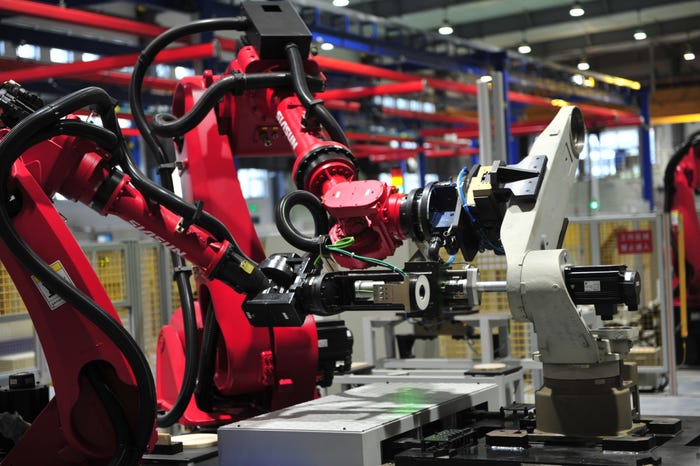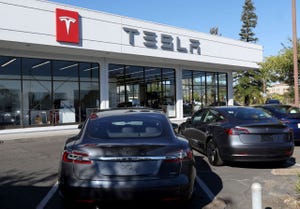Nvidia, Microsoft Join Forces to Accelerate AI Health Care StartupsNvidia, Microsoft Join Forces to Accelerate AI Health Care Startups
Microsoft provides $350,000 worth of software tools to each company

Nvidia and Microsoft have brought together two of their startup ecosystems in a bid to accelerate AI innovation in health care applications, such as for medical devices and workflow improvements.
The companies are bringing together the Nvidia Inception global program and Microsoft for Startups. Hundreds of companies are already part of both ecosystems.
Linking the programs would broaden innovators’ access to accelerated computing by providing cloud credits, software for AI development and the support of technical and business experts, the companies said.
Nvidia is to provide 10,000 ai.nvidia.com inference credits to run GPU-optimized AI models through Nvidia-managed serverless APIs, as well as preferred pricing on Nvidia AI Enterprise. This includes, among other things, the full suite of Nvidia Clara health care and life sciences computing platforms, software and services.
Microsoft plans to provide each company with $150,000 worth of Microsoft Azure credits to access leading AI models, up to $200,000 worth of Microsoft business tools and priority access to its Pegasus Program for go-to-market support.
Both companies plan to offer the selected startups dedicated technical support and hands-on workshops to develop digital health applications with the Nvidia technology stack on Azure.
The first phase of the initiative is to focus on high-potential digital health and life sciences companies that are part of both programs. Future phases would focus on startups in other industries.
Companies already involved in the ecosystems include Pangaea Data, which using its Pallux platform assists health care organizations and pharmaceutical companies to identify patients who are undertreated or untreated despite available intelligence in their existing medical records.
It deploys with Nvidia GPUs on Azure’s HIPAA and uses the Nvidia FLARE federated learning framework for patient privacy.
“Microsoft and Nvidia have supported our work with powerful virtual machines and AI software, enabling us to focus on advancing our platform, rather than infrastructure management,” said Pangaea Data CEO Vibhor Gupta.
Another is Artisight, which uses AI to improve operational efficiency, documentation and care coordination in hospitals to reduce admin for clinical staff and improve the patient experience. The platform uses a range of Nvidia applications to provide speech recognition models that can automate patient check-in with voice-enabled kiosks and computer vision models that can alert nurses when a patient is at risk of falling.
Andrew Gostine, founder and CEO of the startup, said having access to the latest AI technologies is critical to developing smart hospital solutions that are reliable enough to be deployed in real-world clinical settings.
Other companies involved include Artificial, BeeKeeperAI and Niramai.
The new collaboration is not the first time Nvidia and Microsoft have partnered to support health care AI development. Earlier in the year, Microsoft announced the Microsoft Azure with Nvidia DGX Cloud initiative, which is an end-to-end, scalable AI platform for developers, supporting projects in clinical research, drug discovery, medical imaging and precision medicine.
This article first appeared in IoT World Today's sister publication AI Business.
About the Author
You May Also Like



_(1).jpg?width=700&auto=webp&quality=80&disable=upscale)




